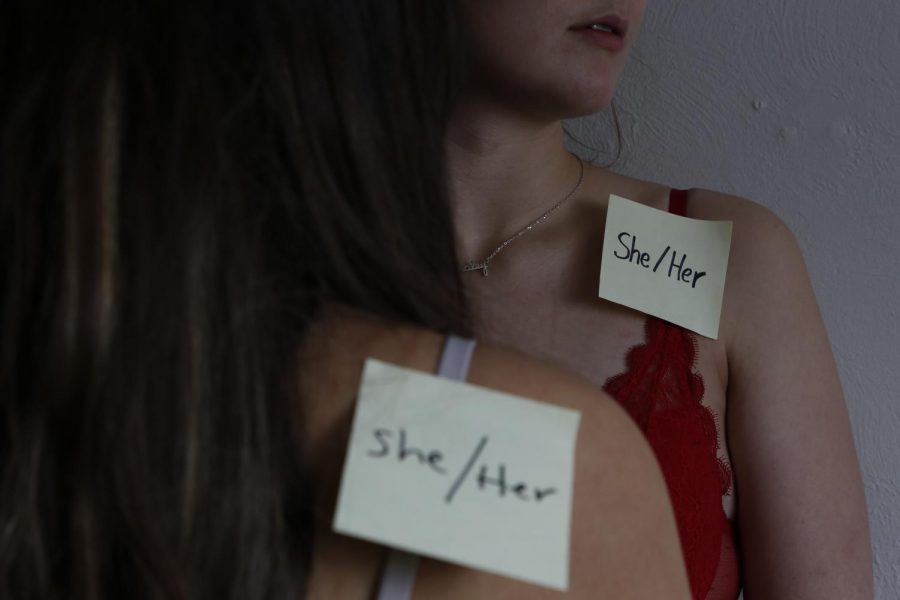How to be an ally to LGBTQ+ community members
Respect pronouns, gender identities, says GIESORC director
ZACH RUBIO | EVERGREEN PHOTO ILLUSTRATION
As more people feel safe “coming out” on the wide spectrum of sexuality and genders, it’s important to make them feel included and respected.
February 15, 2019
Being an ally is about more than the word. It is about more than giving someone a place in your life and accepting them for who they are, be it a cursory acquaintance or a close friend. It’s about listening, understanding, learning and leveraging your own personal privileges for social change.
Being an ally could take on many forms, said Matthew Jeffries, director of WSU’s Gender Identity/Expression and Sexual Orientation Resource Center (GIESORC).
It could be supporting a friend who has come out of the closet or making an effort to ask someone their preferred pronouns and use them correctly. But most importantly, he said, it’s about being an active participant in challenging oppressive power structures.
“I think being an ally is about action and doing something,” Jeffries said. “Learning more, standing up for LGBTQ+ people and understanding privileges.”
Beyond marriage equality, discriminatory policies still exist in the United States, which challenge the safety and well-being of LGBTQ+ people, he said.
It is important for straight or cisgendered people to recognize the privileges they hold and use those as a platform to amplify LGBTQ+ voices and issues. This is confronting homophobic or transphobic speech, educating people on LGBTQ+ issues or advocating for inclusive language or spaces.
In her “Guide To Allyship,” New York-based writer Amelie Lamont wrote that calling yourself an ally and actually being a good one are two entirely different things.
A good ally, she said, is someone who takes on the full weight of the oppression another person is experiencing even without being able to fully understand it.
“A marginalized individual cannot easily cast away the weight of their identity through oppression on a whim,” Lamont said. “They must carry that weight every single day, for better or for worse. An ally understands that this is a weight that they too must be willing to carry and never put down.”
The first step is being supportive, accepting and recognizing another person’s identity, but then you must be an ally in everything that you do. It cannot be turned off when it is inconvenient or uncomfortable, it is a constant state of being the same as the constant state of being LGBTQ+.
Being an ally cannot be switched off when inconvenient or uncomfortable just as LGBTQ+ people cannot switch off their identity.









